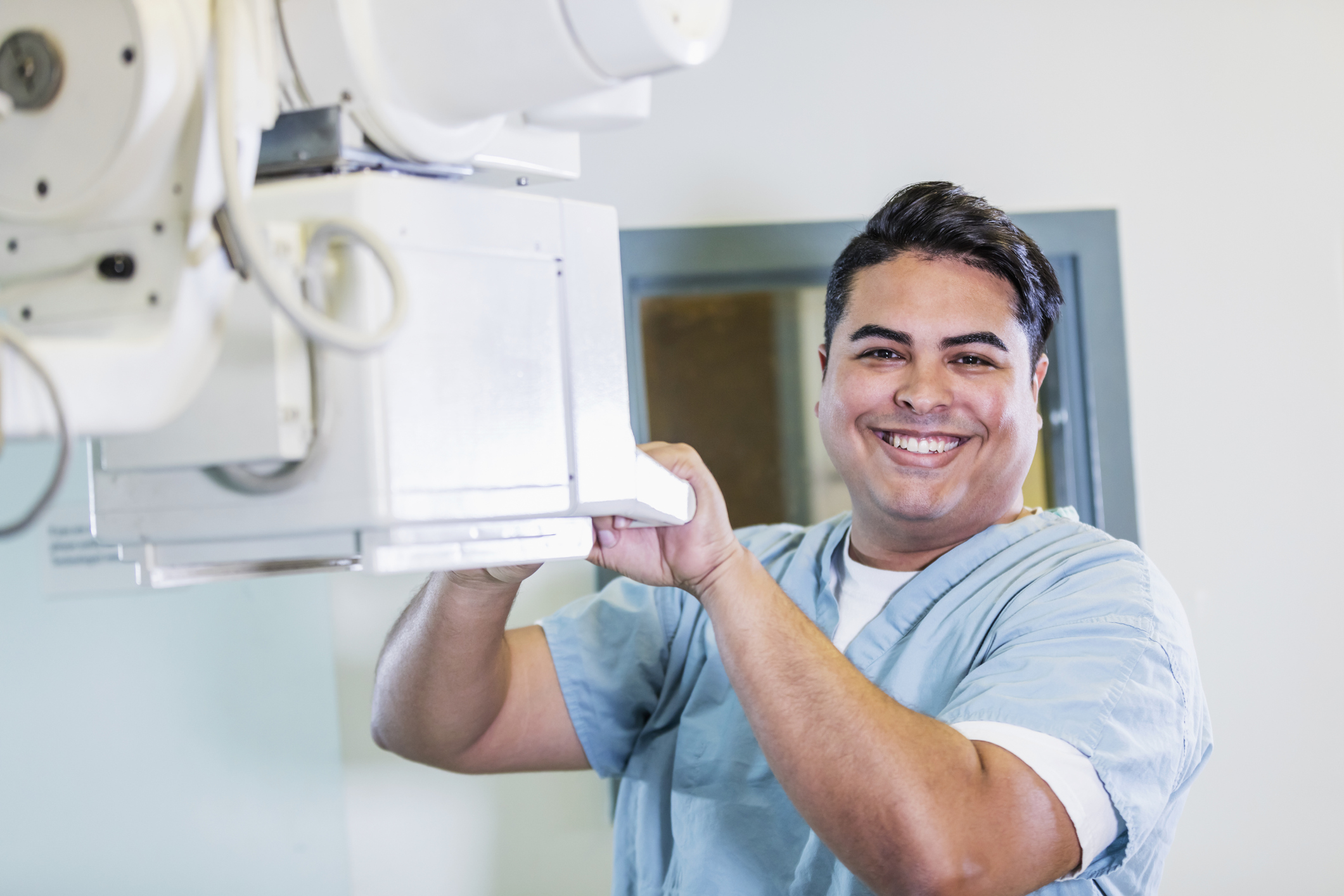Do you want to inspire young people or adults to join us in the diagnostic imaging and radiotherapy workforce? Perhaps you are curious or unsure of where to start?
Are you someone who has lots of experience in career promotion and wants to develop or refresh your learning? Maybe you’re simply seeking a new CPD e-learning activity?
If so, three new e-learning modules – developed in partnership by the Society of Radiographers, the Office for Students’ outreach campaign (www.iseethedifference.co.uk) and Health Education England – could be for you.
Promoting Careers in the Allied Health Professions is an e-learning programme created to support AHPs who are undertaking voluntary outreach work with young people and career changers in schools or other settings.
The resources teach learners about the context for outreach work and its importance, how to develop content that is relevant to different audiences, and how to deliver compelling content that will help to inspire the next generation of AHPs.
Raising awareness of our radiography professions is a simple and effective way to influence the workforce of the future. Let’s help the public make informed decisions about our job roles, careers or training opportunities.
We want to increase applications to radiography- related careers so that higher education institutions and employers can choose the best candidates to train in our work. Ultimately, they will work alongside us, caring for patients into the future.
Young students and potential career changers are inundated by digital advertising and careers advice. Therefore, in a world predominantly connected via virtual communication, nothing is more meaningful than sharing your personal experience – or explaining, clearly and simply, what is involved in diagnostic imaging and radiotherapy roles.
Building connections with schools and careers organisations virtually or directly, as pandemic social distancing requirements change, can inform and inspire people. The shy school student, sitting in their information and communication technology or design technology class, needs to understand terms such as ‘diagnostic radiographer’, ‘therapeutic radiographer’ and ‘sonographer’. Let’s reach those students who are sitting in science, technology, engineering and maths-related lessons and beyond.
The person who is questioning their future working life (perhaps because of the impact of the pandemic or unexpectedly becoming unemployed) needs our help to understand some of the choices in the jobs and training market available to them.
The careers lead or teacher needs help understanding what AHPs do as they wade their way through multiple job roles and titles. Importantly, we need to share some of the many long- term advantages of training and working in radiography careers, such as rewarding work, high employability and starting salaries that are above the national average. And we can explain the ways to learn varied, diverse transferable skills in work that is rapidly evolving, scientific and patient focused.
One simple way you can help and support these members of the public is by assisting them to make meaningful choices about the work we do – and the e-learning modules will help you do just that.
The SoR has been working on this project since its first meeting with the Higher Education Funding Council for England in April 2017. The council set aside £1m a year for 2017-18, 2018- 19 and 2019-20 to support the sustainability of small, specialist and vulnerable subjects such as therapeutic radiography.
This was the start of our journey of working with the council, which was replaced by the Office for Students in April 2018. We have now reached the end of a three-year strategic intervention, including elements of support, recruitment and retention. The SoR sat on the programme steering board for the duration and was involved in the project proposal as well as the planning and implementation of the programme.
A full evaluation report will be available in due course but the following is a summary of the core activities:
- A marketing campaign at www.iseethedifference.co.uk designed to raise awareness of and support student recruitment to small and specialist AHPs.
- A team delivering a programme of outreach activities.
- Research commissioned into the barriers to mature student recruitment and how to address them.
- A study commissioned exploring male participation in nursing and allied health to understand the differences in recruitment rates and the experiences of male students across different healthcare disciplines to help overcome barriers to recruitment.
- Stakeholder engagement events to share learning and good practice.
- Challenge Fund split into two calls for applications to support innovative interventions relating to healthcare courses.
- Therapeutic radiography programmes given more than £141,000 in funding.
Michelle Tyler, SoR professional officer for careers promotion and outreach, and Spencer Goodman, SoR professional officer for radiotherapy
